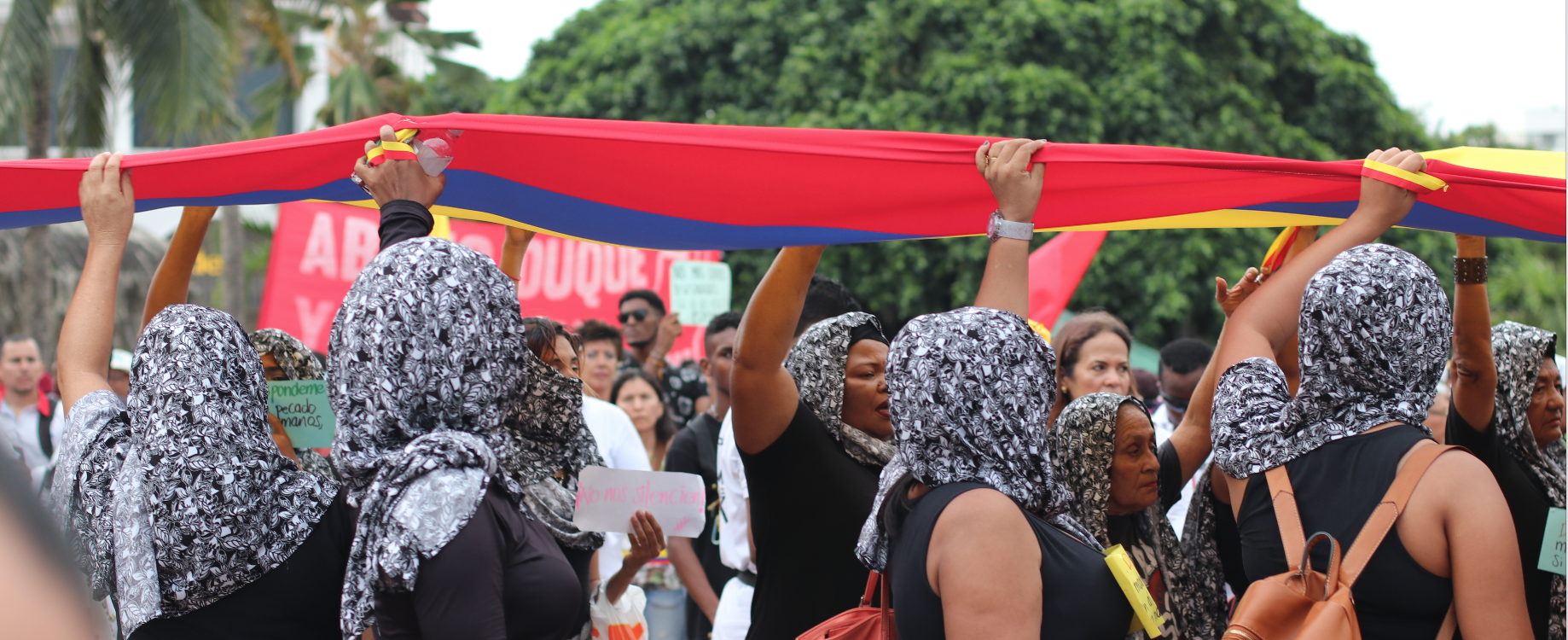Statement: FOR LIFE AND FOR PEACE, NOT A STEP BACK WITH THE PEACE PROCESS!
Bogotá, Colombia. August 29th, 2019. The International Institute on Race, Equality and Human Rights (Race and Equality) expresses extreme concern about the video released this Thursday morning, in which three […]

Bogotá, Colombia. August 29th, 2019. The International Institute on Race, Equality and Human Rights (Race and Equality) expresses extreme concern about the video released this Thursday morning, in which three former leaders of the Revolutionary Armed Forces of Colombia (FARC, for its initials in Spanish) announced a new stage of armed conflict for what they have called “the awakening of consciences” in Colombia. During the speech recorded on video, Iván Márquez, former leader of the FARC, argues that given the “betrayal” and lack of political will of the Colombian Government for the effective implementation of the peace agreements, a “New Marquetalia” or new armed group will begin to operate in coordination with the National Liberation Army (ELN, for its initials in Spanish), a guerrilla that still operates outside the law in Colombia.
Race and Equality urges the actors involved in this process to respect and ensure compliance with the Peace Agreement for the construction of a stable and lasting peace throughout Colombian territory.
We remind all parties that the war has not only left significant impacts on the lives of all Colombian citizens, but has also harmed the social sectors that have historically been victims of discrimination and marginalization: indigenous peoples, Black communities and peasants have been the main victims of a war that requires the political will of the Colombian State and armed actors to guarantee life, peace, justice and guarantees of non-repetition.
“It was we, we, our children, our youth, our husbands, our communities who have died, that cannot be forgotten in Colombia and that is what both the government and the FARC must take into account today, so this process can continue and be fulfilled. We, the most affected by the conflict, have supported this (peace) process and will continue to support it because we are convinced that there is no other way to resolve this conflict that has generated so much pain to our country. We just want to live well and peacefully. ”Erlendy Cuero Bravo, Afro-Colombian leader victim of the armed conflict.
As an organization committed to the defense and promotion of human rights, we urgently call on the Colombian Government, on all its institutions, on dissident groups of the former FARC-EP guerrilla group and on the armed groups of the ELN to be aware of the great responsibility that they acquired in constructing a peaceful society and to reaffirm their commitments to advancing a peaceful dialogue in order to conclude a war that has extended for more than 50 years. The armed conflict in Colombia has left an abhorrent number of victims who deserve the utmost commitment of leaders, social organizations and society in general to constructing an alternative path for processing differences and to building a society with social justice.
Likewise, we urge the international community to pronounce clearly regarding the situation of uncertainty generated by the message of the former guerrilla leaders to the Colombian people. We request that the international community continue monitoring and accompanying the Colombian state in the peacebuilding process, especially as mediators and observers of the people who are still victims of violence in the territories.
Race and Equality will continue to monitor compliance with the Peace Agreement, especially regarding the Ethnic Chapter, as part of its commitment to the defense and promotion of the human rights of historically discriminated ethnic peoples and victims of exclusion and marginalization.

